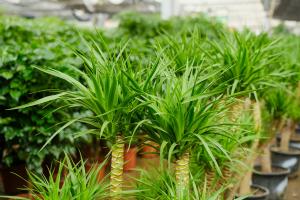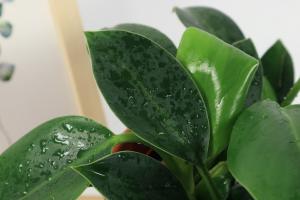Is Rubber Plant Toxic to Dogs?
Rubber plants, also known as Ficus elastica, are a popular indoor plant due to their hardiness and attractive foliage. However, concerns have been raised about whether or not rubber plants are toxic to dogs. In this article, we will explore this issue and provide you with the information you need to ensure the safety of your canine companion.
What is a Rubber Plant?
Rubber plants are native to Southeast Asia and belong to the family Moraceae. They can grow up to 30 meters tall in the wild and have shiny, oval-shaped leaves that can be up to 30 centimeters long. They are considered easy to care for and are often used as indoor houseplants.
Are Rubber Plants Toxic to Dogs?
Yes, rubber plants are considered toxic to dogs. They contain a sap that can cause skin irritation and other unpleasant symptoms if ingested. The sap of the rubber plant contains a unique protein called ficin, which is responsible for the plant's toxic effects.
Symptoms of Rubber Plant Toxicity in Dogs
The symptoms of rubber plant toxicity in dogs can vary depending on the severity of the exposure. Mild cases may include gastrointestinal upset, such as vomiting and diarrhea. More severe cases can cause skin irritation, difficulty breathing, and even renal failure.
Treatment for Rubber Plant Toxicity in Dogs
If you suspect that your dog has ingested part of a rubber plant or is displaying symptoms of rubber plant toxicity, it is essential to seek medical attention immediately. Your veterinarian may induce vomiting to eliminate any remaining plant material in your dog's digestive system or provide supportive care to manage symptoms.
Preventing Rubber Plant Toxicity in Dogs
To reduce the risk of rubber plant toxicity in dogs, it is best to keep rubber plants out of reach of your canine companion. This includes both the leaves and any other plant material that may have dropped onto the floor. Additionally, it is crucial to supervise your dog when they are exploring new indoor areas to ensure that they are not exposed to toxic plants.
Conclusion
In conclusion, rubber plants are toxic to dogs and can cause a range of uncomfortable symptoms if ingested. If your dog displays any symptoms of rubber plant toxicity, seek veterinary care immediately. To prevent exposure, keep rubber plants out of reach and always supervise your dog when they are exploring new indoor areas. By taking these precautions, you can ensure the safety and well-being of your canine companion.

 how many times do yo...
how many times do yo... how many planted tre...
how many planted tre... how many pine trees ...
how many pine trees ... how many pecan trees...
how many pecan trees... how many plants comp...
how many plants comp... how many plants can ...
how many plants can ... how many plants and ...
how many plants and ... how many pepper plan...
how many pepper plan...






























